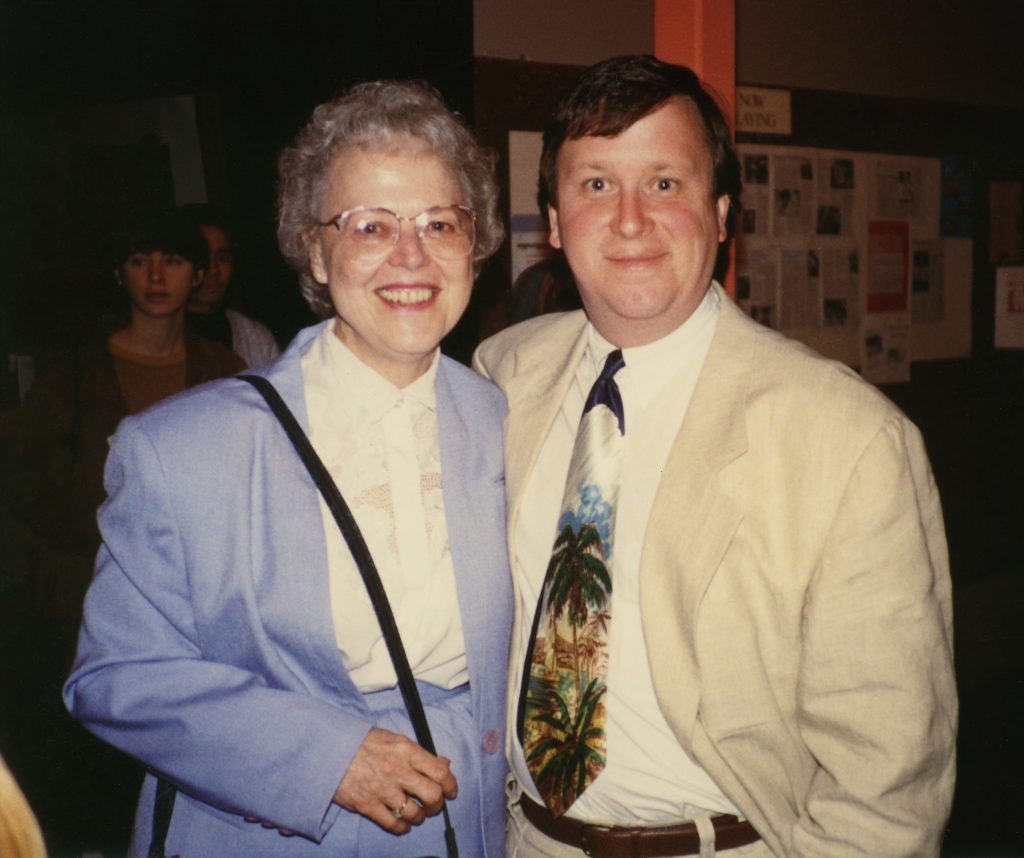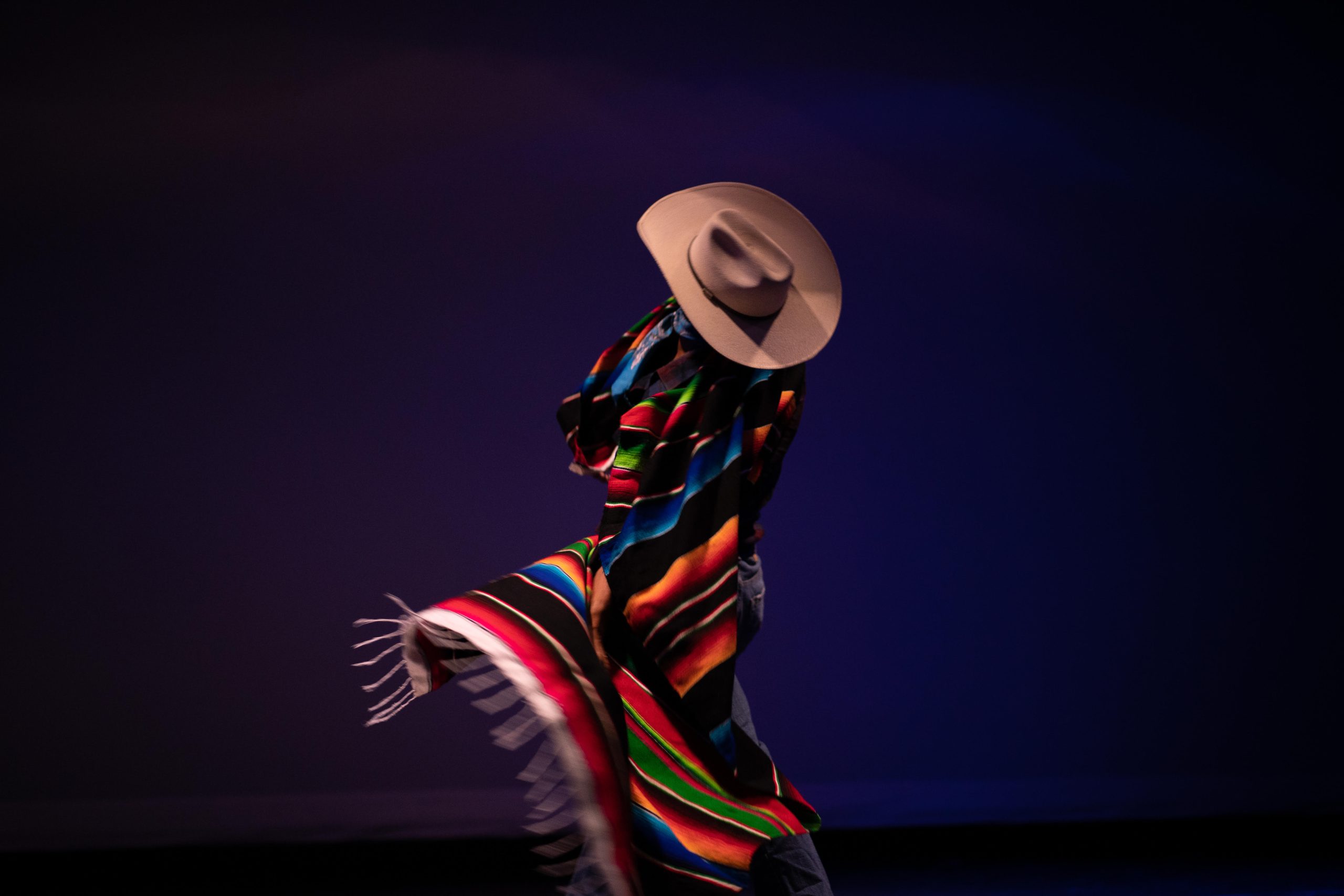
Eddie Cockrell caught the movie bug early. His sister, Ann Cockrell Denikos, remembers going with her big brother to see all the great Disney movies when they were children. Two years older, Eddie in particular favored spaghetti westerns, and in 1968 the whole family went to see 2001: A Space Odyssey at the Uptown Theater in Cleveland Park. Eddie went on to film school and then landed every movie buff’s dream job: film programmer at the American Film Institute, where he worked from 1979 to 1992, a pivotal time in the movies.
Cockrell died on Dec. 29, 2023, of liver failure in Sydney, Australia. He was 67 years old.
Although years have passed since Cockrell moved a world away from his hometown D.C., he left behind a legacy for a generation of local moviegoers whose lives were changed by the screenings he programmed at AFI for more than a decade.
The AFI was part of a movie theater scene in the ’70s and ’80s that included the late, lamented Biograph in Georgetown, as well as the National Gallery of Art’s still functioning theater and other venues, many lost to time. (You may know that the legendary d.c. space regularly screened movies, but did you know that Sidwell Friends School on Wisconsin Avenue NW once had a summer film series?) In the days before streaming channels that promised the whole of film history, and even before video rental shops became havens for cinephiles in the ’80s, people hungry for movies had to get their fix on the street. And Cockrell played a key part in D.C.’s repertory ecosystem.
Cockrell was born in 1956 in Washington, and graduated from Wheaton High School in 1974—he liked to tell friends that he went to school with Joan Jett (he did—before she moved to L.A.). Robert Mugge, director of such music documentaries as Sun Ra: A Joyful Noise and The Gospel According to Al Green, went to the same church as the young Cockrell.
“I didn’t really know him then,” Mugge writes in an email to City Paper. “I was nearly six years older. Still, he was impossible to miss as a young kid. I used to see him running around the church, a veritable ball of energy with thick eyeglasses and a mischievous grin.”

Cockrell never lost that boyish enthusiasm, and quickly developed an off-the-cuff eloquence. In 1978, he earned a bachelor’s degree in Cinema Studies and English from American University. The next year he began a stint at AFI (back when it was located at the Kennedy Center), where he worked as a film programmer until 1992. During this period, Cockrell became a champion of Mugge’s documentaries, which he regularly screened. Their professional relationship grew personal as they became great friends; it was through Cockrell that Mugge met Diana Zelman, his wife and current filmmaking partner.
Cockrell’s omnivorous taste fed programs of experimental films and no-budget grindhouse fodder, as well as crowd-pleasing surveys of Hollywood classics. He organized a recurring series that covered the ’30s year-by-year; the 1934 series, for instance, encompassed both the documentary Man of Aran and the Fred Astaire and Ginger Rogers musical The Gay Divorcee. With his long-running Cult Movies series, Cockrell brought saucier fare with crowd-pleasing double bills such as one that paired the 1979 Ramones vehicle Rock ’n’ Roll High School with the madcap 1966 high school comedy Lord Love a Duck.
Filmmaker Jeff Krulik, who credits Cockrell for being an early champion of his work, called his old friend “fearless” in his programming. Krulik remembers one classic Cockrell moment that didn’t happen. In 1990, Cockrell invited former FBI agent and onetime member of the Richard Nixon administration G. Gordon Liddy to appear at a screening of the recently released film Street Asylum, in which the Watergate figure starred as a deranged mayoral candidate who proposes an anti-crime initiative called SQUAD—“Scum-Quelling Urban Assault Division.” Cockrell was quoted in several newspapers including the Philadelphia Inquirer, the La Crosse Tribune, and the Akron Beacon Journal, saying that Liddy “thought that distribution of the film would ruin his career … I’d say his career is pretty bulletproof at this point.”
Elias Savada was working on the American Film Institute Catalog of Feature Films (which cataloged every motion picture commercially released in the United States since 1893) when he met Cockrell in the 1970s. Up until the 2000s, when Cockrell was still living in Wheaton, the two would regularly meet at the Stained Glass Pub for pizza and beer. A longtime film researcher and historian, Savada easily points to Cockrell’s significance in programming films that changed lives. Discussing Tod Browning’s notorious 1932 film, and Cockrell’s screening of said film, Savada tells City Paper, “Freaks changed my life!” Savada went on to co-write, with noted horror critic David Skal (who himself died in a car crash on New Year’s Day), the 1995 book Dark Carnival: The Secret World of Tod Browning.
The ability to change someone’s life is what Cockrell’s work meant to viewers who came of age in the ’70s and ’80s. One Cult Movies double bill in 1983 was especially pivotal for this future arts critic: Russ Meyer’s Beyond the Valley of the Dolls and Larry Cohen’s The Private Files of J. Edgar Hoover, which I saw a few days after I turned 16. Although Meyer’s reputation is as a purveyor of sex and violence, what opened my eyes was the craftsmanship, the rapid-fire editing, and the hilarious deadpan script by film critic Roger Ebert. Little did I know then that I would grow up to be a freelance film critic, but that screening shaped my tastes at an impressionable age, teaching me that art can be found in the most unlikely places.
Before his own stint as an AFI programmer, critic Mike Jeck distributed Japanese films through his company R5/S8 (named after his favorite seat in the AFI’s Kennedy Center auditorium). Jeck remembers Cockrell generously offering to program all the films R5/S8 distributed, including Zatoichi Meets Yojimbo and The Makioka Sisters. In a personal touch, Cockrell cordoned off Jeck’s favorite seat with a strip of red film leader.
Jeck also remembers Cockrell taking care of their mutual friend, critic Karen Jaehne, who died of cancer in 2000 at 51. That compassion in time of crisis left a lasting impression on Jeck. “He was the friend you want to be with you when you’re very ill,” Jeck recalls. “Somebody was there for her right up until the end.”
His impact on people (clearly) and programmatic fingerprints extended far beyond AFI. He wrote the Film Talk column for the Washington Post in the mid-’80s, covering trends in arthouse cinema and local repertory screenings. He appeared on Fox Morning News as a film critic in the ’90s, and he wrote program notes for FilmFest DC and other local festivals for decades, continuing to offer his services even after he moved to Australia in 2005. But he made perhaps his biggest and most enduring impression for audiences in Washington.
Cockrell is survived by his children Clementine and Gus Cockrell; his sister, Ann, and brother-in-law Mike Denikos; his niece, Alyssa Denikos; and his partner, Donna D’Ascenzo. His ashes will be interred next to his mother Dorothy’s at the Lutheran Church of St. Andrew in Silver Spring.



